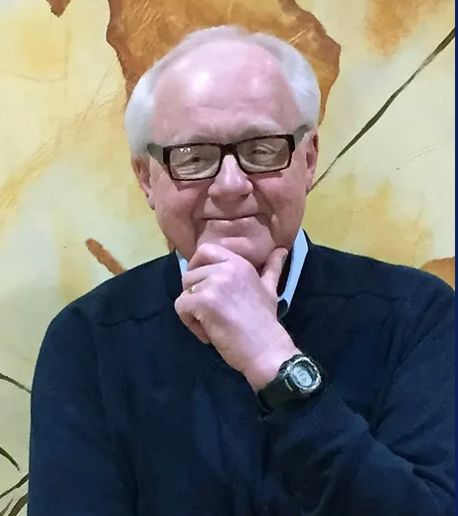
This second article on this topic takes us deeper into the story of John Blumberg. John is a national speaker, thought leader on integrity, and author of four books.
His most recent work is titled Return on Integrity. The Blumbergs live in Naperville, Illinois.
Mark: John, explain your decision to leave a very successful organization. (Arthur Andersen)
JOHN: While I started in audit with Andersen, right out of college, I shifted my focus along the way from numbers to people and invested the majority of my 18-year career there in HR and eventually worldwide. My recruiting responsibilities included becoming a student of the human condition in a high-performing culture. It inspired me to watch, notice, and learn the elements of great leadership. Leaving the firm was the hardest part of my decision to follow my calling, but the initial focus was to share wisdom around these general leadership principles. Little did I know what God would eventually have in store…well beyond that initial focus!
Mark: How did the issue of integrity rise to become a main theme of yours?
JOHN: I was 5 years into my speaking journey when Andersen imploded. It was not only surreal, but a turning point of great discernment and where my journey needed to head. I realized that you could talk leadership principles and skills all day long (and no doubt they are important) but can be misguided or a waste of time if they are not deeply grounded within an individual’s core. I also knew the same was true about organizational culture if each leader wasn’t grounded within their own core…and ultimately the same for everyone in the organization. Initially, personal and organizational core values became the focus. Ultimately, my entire focus centered on the re-imagination of the very essence of integrity.
Mark: What are some core beliefs that you have come to embrace?
JOHN: It became clear to me that integrity is not defined by the conventional wisdom of a word like honesty, or a phrase like “what you do when no one is watching.” These are indeed lagging indicators of an individual within the essence of integrity, but not the definition. Integrity is not a core value, but the fabric of every core value…individually and organizationally. The deeper I go into the concept of integrity the less I actually know. It unleashes the endless possibility that integrity holds for every leader and every organization if they are willing to have an open mind to see it in ways they have never thought about it before.
Mark: Where do most people “miss the mark” on this topic?
JOHN: There is a great dilemma in this work called “assumption” —I assume I know my core when I don’t. This is very common. My experience would indicate that only about 5% of people know their own core values—or what a core value is. Most make this assumption mistaking the critical difference between “what I value” vs. “what are my core values.” They sound similar, but are different—and understanding what seems to be a subtle difference changes everything!
Mark: How does an organization verify the public perception of their integrity?
JOHN: This is done with good motives and the right intention. The problem becomes that, while this verification may be attempted with good intention, this need for external verification often intentionally or unintentionally becomes a program of compliance—resulting in everyone “looking the part” rather than “becoming and living the part.” It results in a shiny veneer that can become easily tarnished when things get tough, goals stretch too far, or metrics and measurements no longer become accountable to this claimed and preached “integrity.” I advise leaders at the top that, if they are not deeply serious about integrity or aren’t willing to become vulnerable deep within themselves, they should do nothing. Hypocrisy can be far more damaging than avoidance, yet both drift to undesirable places.
Mark: Can you cite examples of companies—of leaders—who “get it” when it comes to integrity?
JOHN: I try to avoid citing specific examples because I believe every organization still has a long way to go. Followers in leadership positions long to see where something has been tried and been successful. That is totally understandable and much safer. Leaders in leadership positions are the ones that go all-in to create the examples that others long for.
Mark: Describe what people will gain by reading or listening to the audio of Return on Integrity.
JOHN: Return on Integrity will take you on a journey to the one essential thing— right past your assumptions—to your core. It is indeed an adventure and you just have to be prepared to go on a journey that will never end. You quickly realize that you would never want it to end. It won’t change what you see … yet it will change where you see it all from. And that changes everything…individually and organizationally.
Mark: As the Scripture says,
“The righteous who walks in his integrity—blessed are his children after him!” Proverbs 20:7 (ESV)
For more information on John Blumberg, go to john@blumbergroi.com.






















